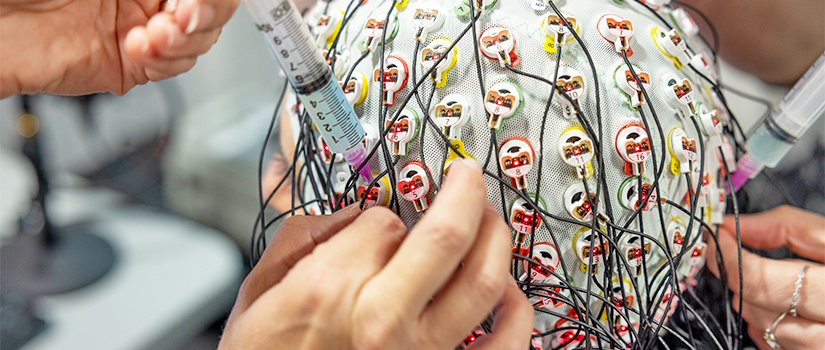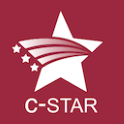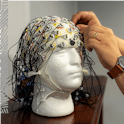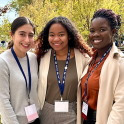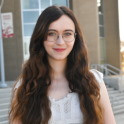Department Mission
The mission of the Department of Communication Sciences and Disorders is to promote
and advance knowledge of the nature, prevention, diagnosis, and treatment of communicative
and related disorders through all stages of the lifespan and across all individual
backgrounds. As the leading graduate and research program in communication sciences
and disorders in South Carolina and one of the leading programs in the nation, it
seeks to prepare students as clinical scientists through excellence in clinical training,
scientific research, instruction, and service. The department seeks to fulfill its
mandate in providing an open and welcoming environment where all can develop to their
highest potential.
University of South Carolina's Mission
The mission of the Department of Communication Sciences and Disorders fits well with
the mission of the University of South Carolina: The primary mission of the University of South Carolina Columbia is the education
of the state's citizens through teaching, research, creative activity, and community
engagement.
The Department's mission is consistent with and supports the university's mission
through its focus on scientific research and the education of future researchers and
clinical scientists and its excellence in teaching and ensuring its students are educated
in current theory and evidence-based practices. Further, the Department reflects the
mission of the University through its outreach to the citizens of South Carolina through
the speech, language and hearing services provided via its Speech-Language-Hearing
Research Center.
Arnold School of Public Health's Mission
The Department of Communication Sciences and Disorders is housed within the Arnold
School of Public Health. The Department’s mission dovetails well with the School’s
mission:The Arnold School of Public Health will improve population health and well-being by
fostering innovative education and research that promotes health and healthy environments
and will use that knowledge to prevent and effectively respond to disease, disability,
and environmental degradation in diverse communities.
The Department’s mission is consistent with and supports the School’s mission through
its focus on advancing knowledge of the nature, prevention, diagnosis, and treatment
of communicative disorders. Additionally, the Department echoes the mission of the
School through its focus on educating its students to become highly qualified clinical
scientists who provide effective, efficient and equitable services to their clients
from diverse populations.
Initiated through a federal Office Of Education grant in 1968, the graduate program
in Communication Sciences and Disorders (COMD) at the University of South Carolina
accepted its first students for the Master of Education degree in 1969 and graduated
its first student in 1970. There were only two faculty members, five full-time students,
and fifteen part-time students in the program. In the early 1970s, COMD became a freestanding
department within the Division of Associated Health Programs. The Department was one
of the first in the nation to offer the professional degrees, Master of Speech Pathology
(MSP) and Master of Audiology (MAud).
As the University developed a School of Public Health (now the Arnold School of Public
Health), COMD joined this unit. The Department flourished in this environment and
soon had fifteen faculty members and eighty full-time students. In 1984, four students
(three in speech pathology and one in audiology) were admitted into the Department’s
new doctoral program, and three years later, PhD degrees were conferred upon its first
graduates. With an emphasis on research and teaching, the program was designed to
prepare professionals for academic careers at major research universities.
In 1995, COMD began one of the nation’s few master’s degree programs in speech pathology
to be offered entirely through distance education. This program was designed to assist
the State Department of Education in meeting federal mandates to upgrade existing
bachelor’s-level clinicians to the master’s degree. Again, funded by a US Department
of Education training grant, 24 students, all of whom were employed in the public
schools, began this three-year, part-time program, and in 1998, 21 of those students
received the Master of Communication Disorders degree (MCD). In 2006, COMD began addressing
the SLP vacancies in rural parts of the state by expanding the MCD program to include
applicants with no previous undergraduate training in speech-language pathology.
For the first time in the history of the COMD, the Speech and Hearing Research Center,
the department office, and (most) academic faculty offices and research labs were
relocated and housed together into one facility in June of 2014. Once separated by
several miles, these offices and the Center are now located in the historic Keenan
building in downtown Columbia at the corner of Sumter and Lady Streets. The new facility,
which was renovated to house both the Center and the department, is approximately
17,000 square feet. The new facility has 12 speech and language diagnostic/treatment
rooms, a full audiology suite that houses the audiology sound booths and cochlear
mapping rooms, and a large student area that houses computer and materials preparation
work stations. It also is home to nine different research labs in which research faculty
are conducting investigations in the areas of speech perception, literacy, and speech
production and motor control. As of 2015, there were 25 faculty within the department.
COMD has graduated over 1,500 master’s-level communication professionals and a substantial
number of doctoral level professionals. Based on available data, the School of Public
Health’s graduate program in COMD has become one of the nation’s largest, with 177
students currently seeking their master’s or doctoral degree. The USC Speech and Hearing
Research Center offers state of the art assessment and treatment of communication
disorders. It provides over 6,000 patient visits per year and houses the USC Cochlear
Implant Team and Auditory Verbal Therapy Program, the Stroke Recovery Program, the
Early Childhood Language Program, the Parent Training Program, and many other services
for individuals with speech, language, hearing, or swallowing problems. In addition
to the USC Speech and Hearing Research Center, the program utilizes over 300 external
practicum sites to prepare its students for clinical practice. Unique specialty training
is available in the areas of neurological disorders and habilitation of children with
cochlear implants.
COMD graduates are speech-language pathologists in medical centers, schools, and clinics
throughout South Carolina, the Southeast, and the nation. Many graduates have pursued
doctoral level studies and have been outstanding academic leaders in other colleges
and universities. COMD graduates are leading professional advocacy organizations such
as the Alexander Graham Bell Association. COMD has expanded its research impact and
is contributing significantly to brain imaging, voice analysis, literacy, and language
function in children and adults. COMD has an outstanding history and a continued commitment
to excellence.
10. You want instructors that truly care about your development as a professional.
9. You want a program where graduates are employed at rates at or near 100% upon completion.
8. You want a program filled with top scientists and rich research opportunities.
7. You want a program that offers rich clinical experiences and hundreds of practicum
sites across the nation.
6. You want to scrub in and observe a cochlear implant surgery from the OR floor.
5. You want to cheer for an SEC football program having a big red chicken for a mascot.
4. You want to specialize in neurogenic disorders or cochlear implant therapy.
3. You want a career helping people across the lifespan.
2. You want a program having certification exam pass rates far above the national
average.
1. You want a top-notch program that will train you for a career you love.

